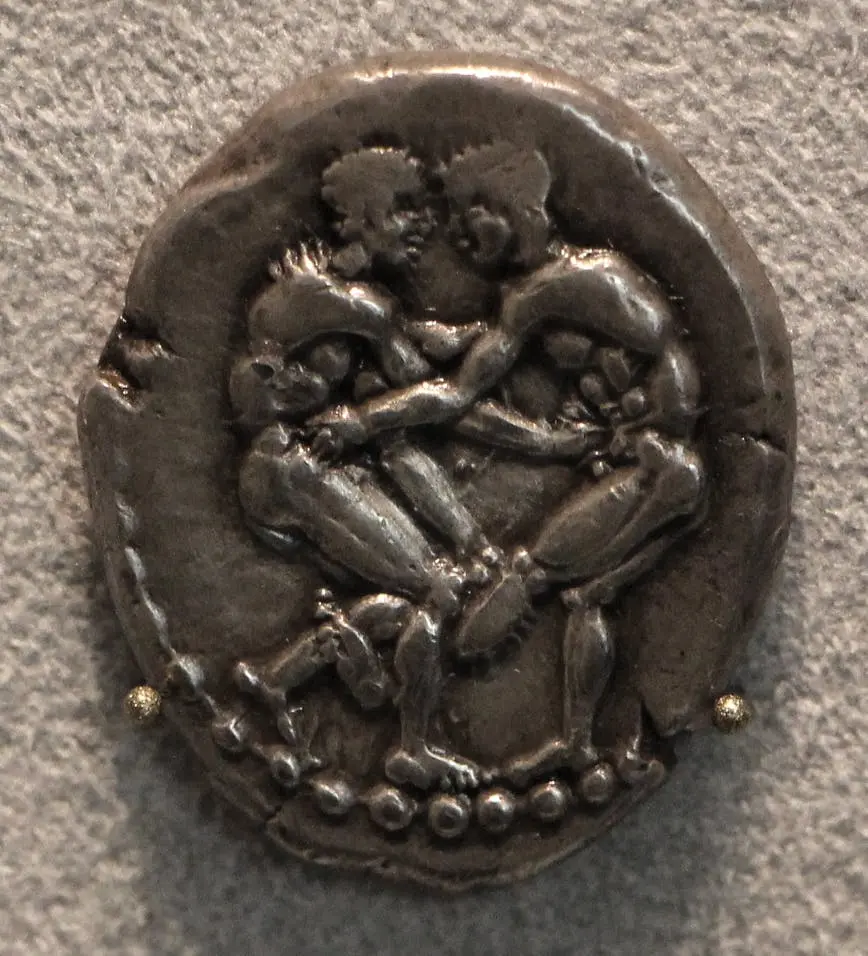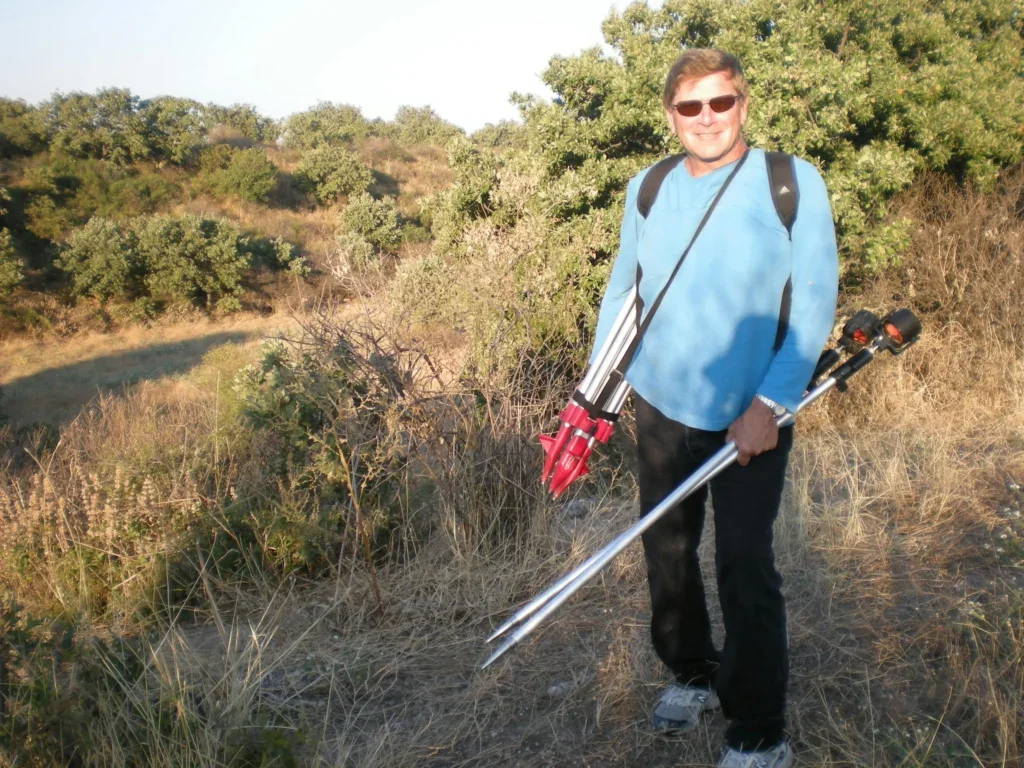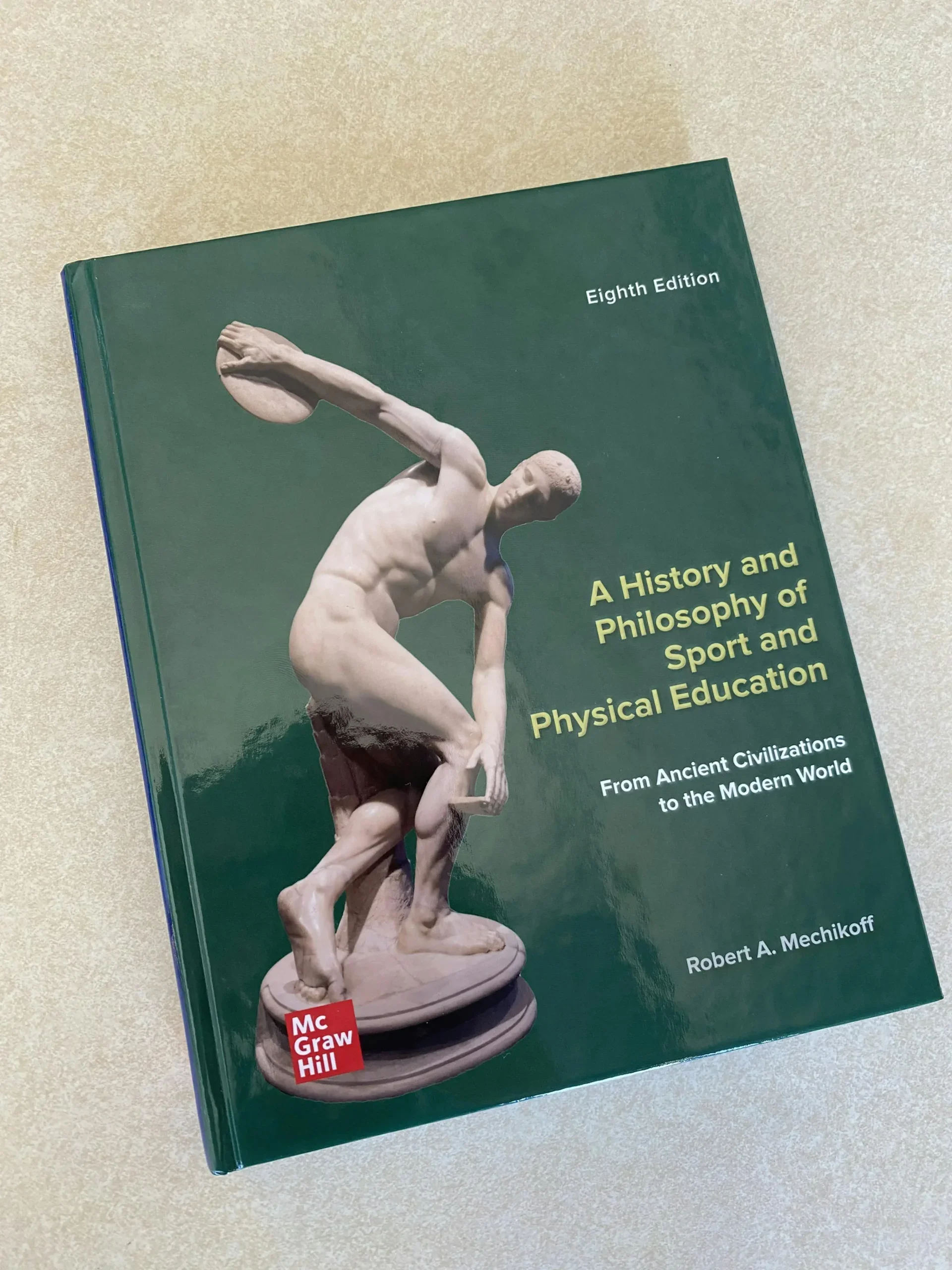Text explores athletic philosophies, behavioral psychology
A bead of sweat trickled down his brow and dripped onto the hot Nemean clay below.
It had been several weeks since Robert Mechikoff had joined in on a five-year-long UC Berkeley-led excavation of the Ancient Peloponnese site, just outside modern-day Corinth. Searching for clues left behind by Nemean Games’ participants of the past, he noticed something peculiar in the dirt– what looked a lot like a mud-caked coin.
Fast forward 20 years.
Now a professor of graduate studies at UCLA, Mechikoff likes to pass around similar uncleaned coins in his History and Philosophy of Sport and Physical Education courses. As students polish off the ancient dirt of antiquity and scan the coinage for faint inscriptions or images, the illustrations they unearth often provide a window to the ancient Greek and Roman world – societies famous for their celebration of violence, male dominance and brutal athletic competitions.
The general opinion of his classes, Mechikoff says, “is that modern day athletes could not successfully compete against the athletes of antiquity – and survive.”
And those timeworn coins? Students keep those.

This past year, Mechikoff and McGraw-Hill Higher Education released the eighth edition of his seminal text, A History and Philosophy of Sport and Physical Education: From Ancient Civilizations to the Modern World. The book accompanies his class on the subject, with chapter content ranging from Ancient Sumer and Mesoamerica to the emergence of the professional and academic disciplines of physical education and kinesiology.
“My travels in Greece and Turkey have taken me to many of the famous, and not so famous, ancient athletic venues and historic sites that we read about,” adds Mechikoff, one of the few Kinesiology/Physical Education professors who can (albeit with difficulty), translate ancient Greek texts from their original sources.
“In class and in the text, I’m able to provide a first-hand account of what archeologists do and what was discovered at the sites where I worked or conducted research.”
“Athletes, coaches, and athletic competition have historically provided us with high drama, unparalleled joy, bitter disappointment and personal meaning,” he adds. “The serious study of sport, its purpose (good and bad), and how it intersects with society and culture and the resulting consequences impacts us all.”

Differing Views
Students in Mechikoff’s courses are often introduced to philosophical and theological beliefs about the human body for the first time.
These widespread attitudes, propagated by religious leaders, academics and philosophers have varied greatly over thousands of years and remain topics of debate today.
“Philosophers and theologians have at times (seen) value in training the body and opined sport can serve a useful purpose,” Mechikoff explains. “In contrast, there are notable philosophers, intellectuals, and theologians who held the body in contempt for various reasons and attempted to eliminate sports, physical training, and admonish and ridicule those who found pleasure and joy in sports and the beauty of human movement.”
From the ancient Chinese practice of dance as means of medical treatment to the Puritans overall disdain for play and games, Mechikoff’s classes examine the rise of calisthenics in the American physical education curriculum as well as the philosophies of Transcendentalism, Pragmatism and behavioral psychology.
Looking Forward
Among other topics, the newest edition of his book covers the effects of Name, Image and Likeness (NIL) laws on college athletics, the impact transgender athletes are having on sports, and the recent Tokyo and Beijing Olympic and Paralympic Games, held in the aftermath of the COVID-19 pandemic.
An internationally recognized sports scholar, Mechikoff is a member of the Olympic Family, the International Society of Olympic Historians, and has served as Supervising Professor at the International Academy of Olympia, Greece on more than one occasion where he’s taught philosophy to graduate students from 25 different countries.
Involved with the organization and planning of several Olympics, starting with the 1984 Los Angeles Games, the International Olympic Committee awarded him the title of “Distinguished Guest of the IOC” in 2002, during the Salt Lake City Games.
Mechikoff, who earned his Ph.D in Sport History and Philosophy from The Ohio State University, says the upcoming 2028 Los Angeles Olympic Games will serve as the model for all future Olympics.
“The 2028 Organizing Committee is headed by UCLA’s Casey Wasserman who has a stellar track record as a visionary who has been very successful in leading high-powered organizations,” Mechikoff points out. “I’m looking forward to how the committee identifies the challenges, opportunities, and new technological innovations that inspire us all.”
As Mechikoff’s text explains, Peter Ueberroth (for whom the Ueberroth Building on the UCLA campus is named), set the standard for modern Olympic events in 1984. Privately financing the event for the first time, Uebberoth’s LA Games generated over $250 million in profits. Then the president of the Los Angeles Olympic Organizing Committee, Ueberroth would eventually become the sixth Commissioner of Major League Baseball and later the president of the United States Olympic Committee.
In the near future, Mechikoff plans to travel to Cairo and visit the Egyptian Museum as well as several local historic sites where athletic competitions were held during the rule of the pharaohs.
First, however, he’ll be making a pitstop in Paris this fall to spend time at the famous Louvre Museum researching their collections dedicated to the Medieval Period, ancient Greece and Rome.
In the meantime, sports history fanatics will have to wait to read about those discoveries, which Mechikoff says he plans to include in a future 9th edition of A History and Philosophy of Sport and Physical Education.
ABOUT THE AUTHOR… A past President of USA Volleyball, Inc., Dr. Mechikoff has taught courses in UCLA’s Transformative Coaching and Leadership program since 2019. In addition to his faculty appointment at UCLA, he also teaches sport history and philosophy in the Kinesiology Department at California State University Fullerton. Prior to his appointment to UCLA and California State University Fullerton, Dr. Mechikoff served as a Professor in the Department of Exercise and Nutritional Sciences at San Diego State University (SDSU) from 1981 to 2010 and is the former Department Chair of Kinesiology at San Diego Christian College. In addition to digs in Nemea, he has participated in excavations of sites in Alexandria Troas and Turkey. He is a Life Member of the International Society of Olympic Historians and longtime member of both the North American Society for Sport History (NASSH) and National Association for Kinesiology in Higher Education (NAKEHE).
Learn more about UCLA’s Transformative Coaching and Leadership Master of Education program.
